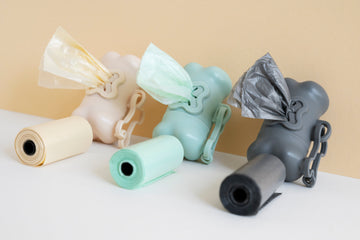In recent years, there has been a remarkable shift towards sustainability in various aspects of our lives, including pet care. An innovative solution gaining prominence in the pet care industry is the use of Post-Consumer Recycled (PCR) poop bags for dogs. These bags are crafted from recycled materials, typically sourced from consumer waste like plastic bottles or packaging. By repurposing existing materials, PCR bags offer a second life to plastic and reduce the need for new plastic production. This approach not only diverts plastic waste from landfills but also conserves natural resources and lowers greenhouse gas emissions.

The adoption of PCR bags for dogs brings several environmental benefits. Firstly, it helps mitigate the negative impact of plastic pollution on ecosystems and wildlife. Pet owners choosing recycled materials contribute to cleaner streets, parks, and waterways. Additionally, the production of PCR bags consumes fewer resources and less energy compared to making virgin plastic, further reducing carbon emissions and environmental harm.
With growing environmental awareness, pet owners are actively seeking sustainable alternatives for their furry companions. The rising demand for PCR poop bags reflects a trend towards conscious consumerism, where individuals prioritize products aligned with their values and environmental stewardship. Consequently, manufacturers and retailers are expanding their offerings of eco-friendly pet care products, including PCR poop bags.
PCR bags for pets represent a significant step towards sustainable pet waste management. By choosing these environmentally friendly alternatives, pet owners contribute to reducing plastic pollution and conserving natural resources. As the pet care industry continues to embrace sustainability, the widespread adoption of PCR poop bags signifies a collective commitment to a greener and more responsible future for pets and the planet.






